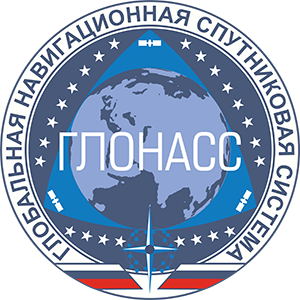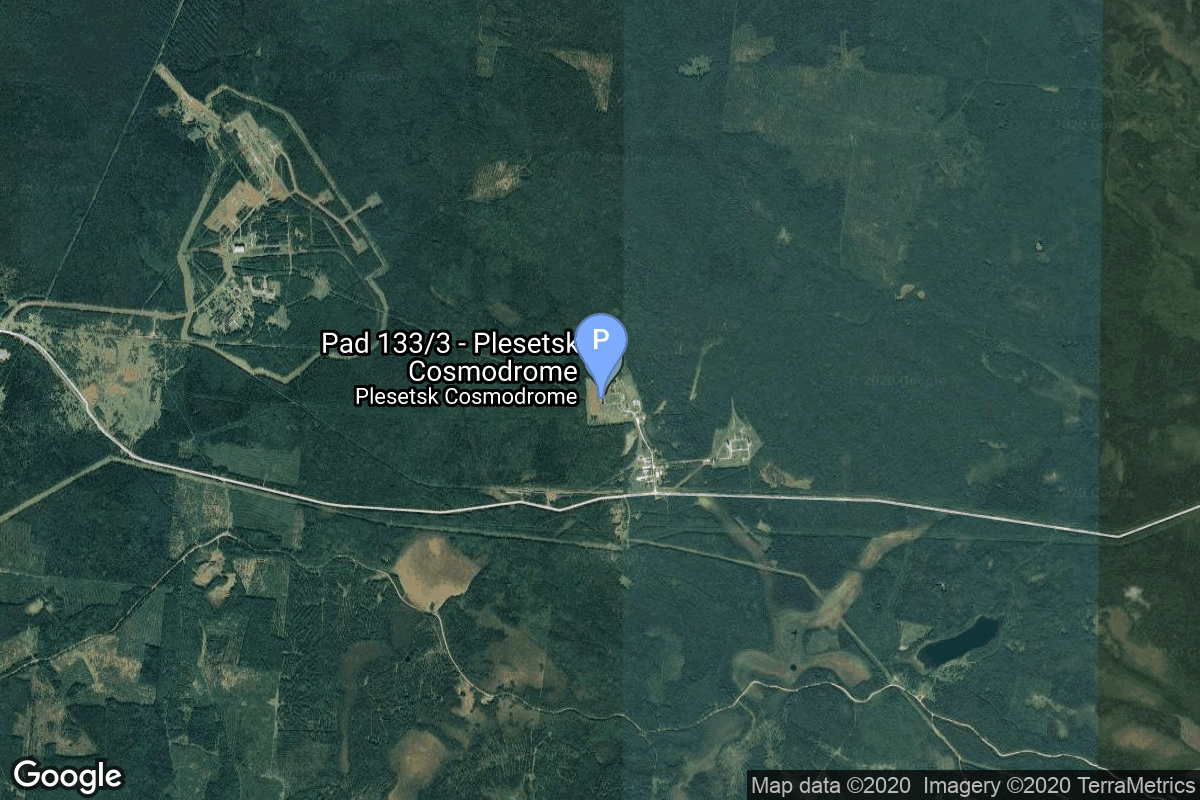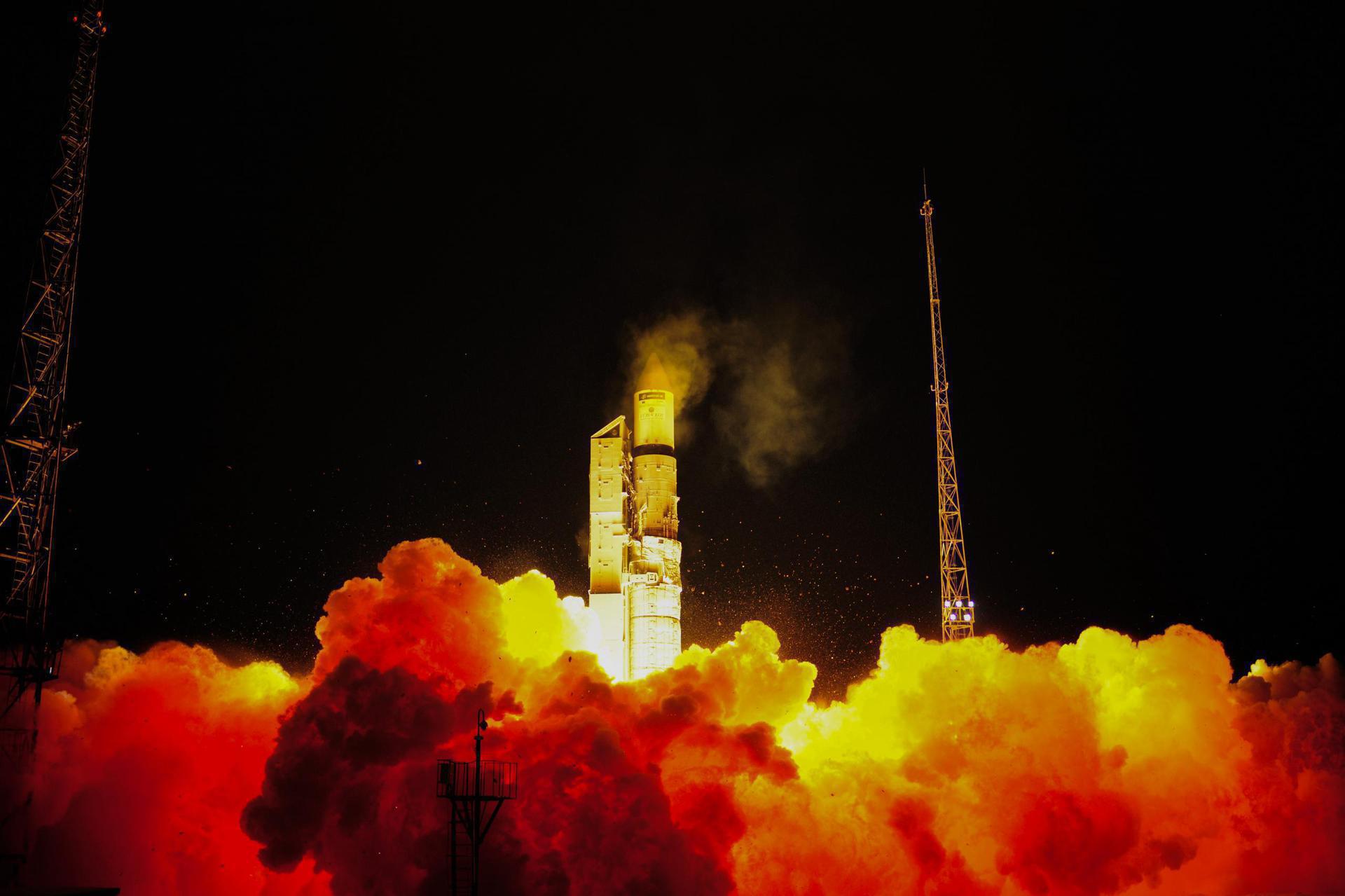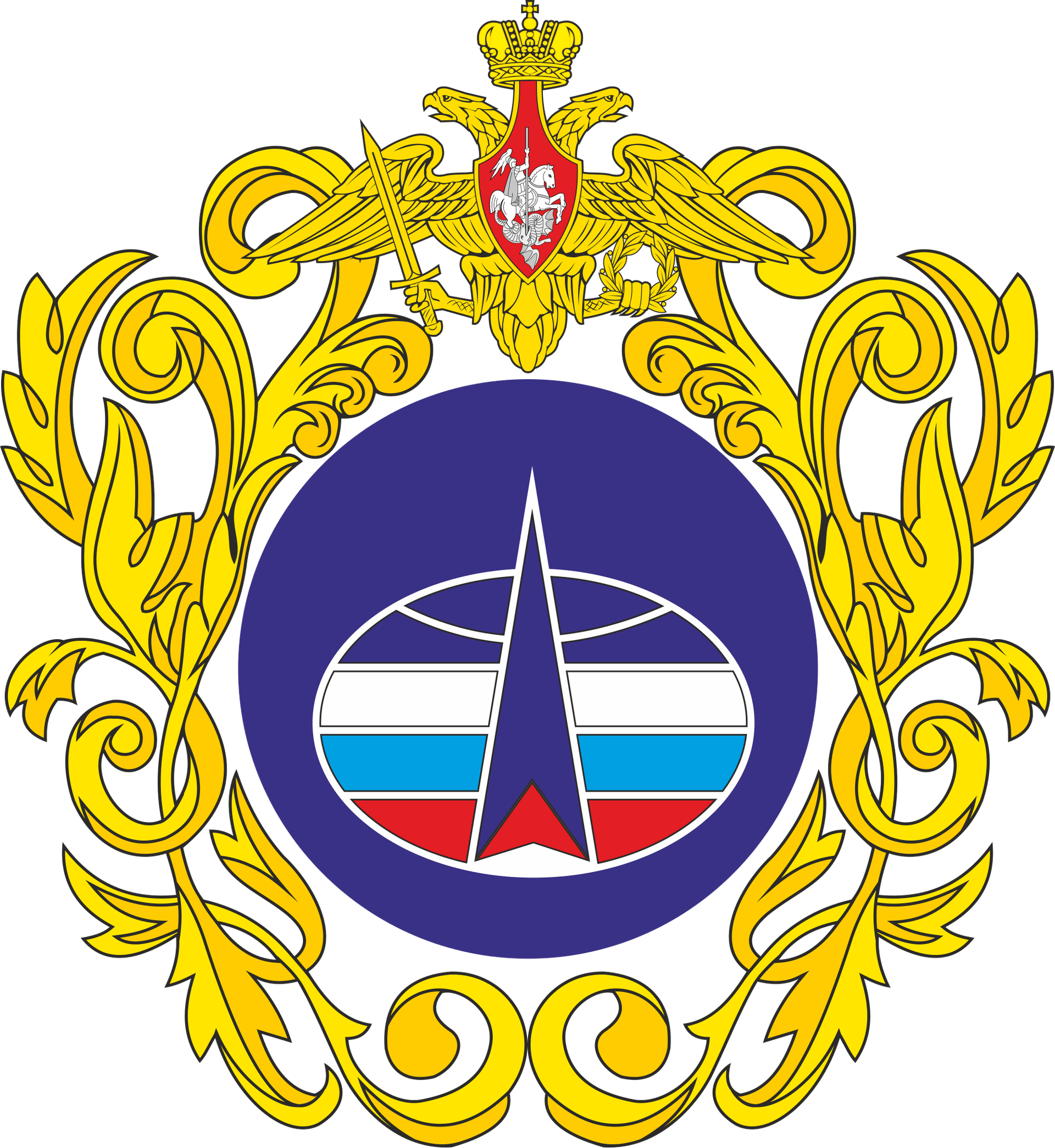Geo-IK-2 N13L (Kosmos 2540)
Rokot / Briz-KM
Russian Space Forces
Mission
Geo-IK-2 N13L (Kosmos 2540)
- Type: Earth Science
- Orbit: Polar Orbit
Geo-IK-2 is a Russian geodesy mission to deliver precise three-dimensional maps of the Earth’s surface and gravitational data for use in scientific studies and military applications. Using GLONASS for accurate positioning data, the 1400kg satellite will operate in a 1000km polar orbit.
Location
133/3 (133L)
Plesetsk Cosmodrome, Russian Federation
133/3 (133L) has witnessed the launch of 159 rockets, including 159 orbital launch attempts, while Plesetsk Cosmodrome, Russian Federation, has been the site for 1667 rocket launches.
Rocket
Agency
Russian Space Forces
The Russian Space Forces are a branch of the Russian Aerospace Forces, that provides aerospace warning, air sovereignty, and protection for Russia. Having been reestablished following August 1, 2015 merger between the Russian Air Force and the Russian Aerospace Defence Forces after a 2011 dissolving of the branch. The Russian Space Forces were originally formed on August 10, 1992 and the creation of the Russian Armed Forces.



